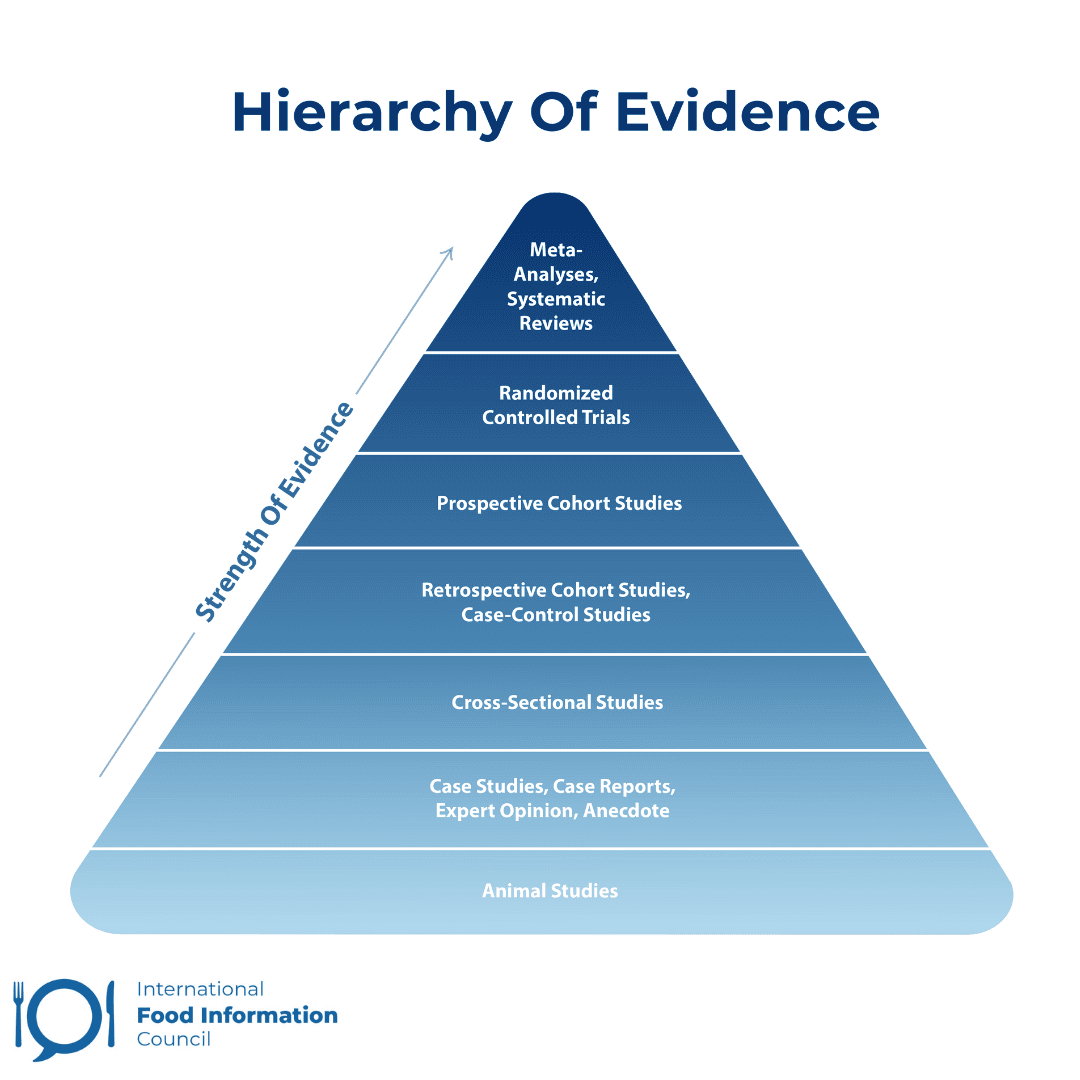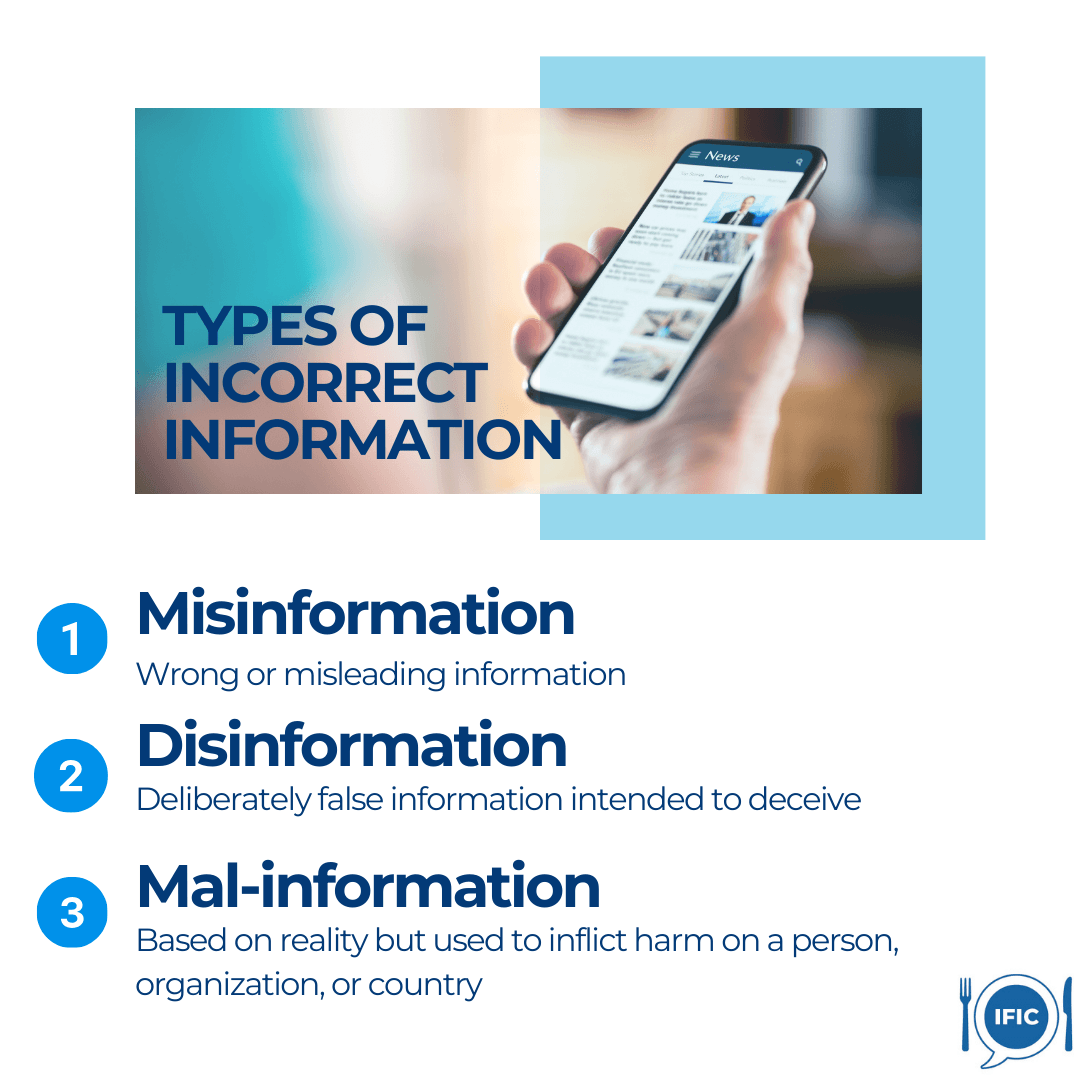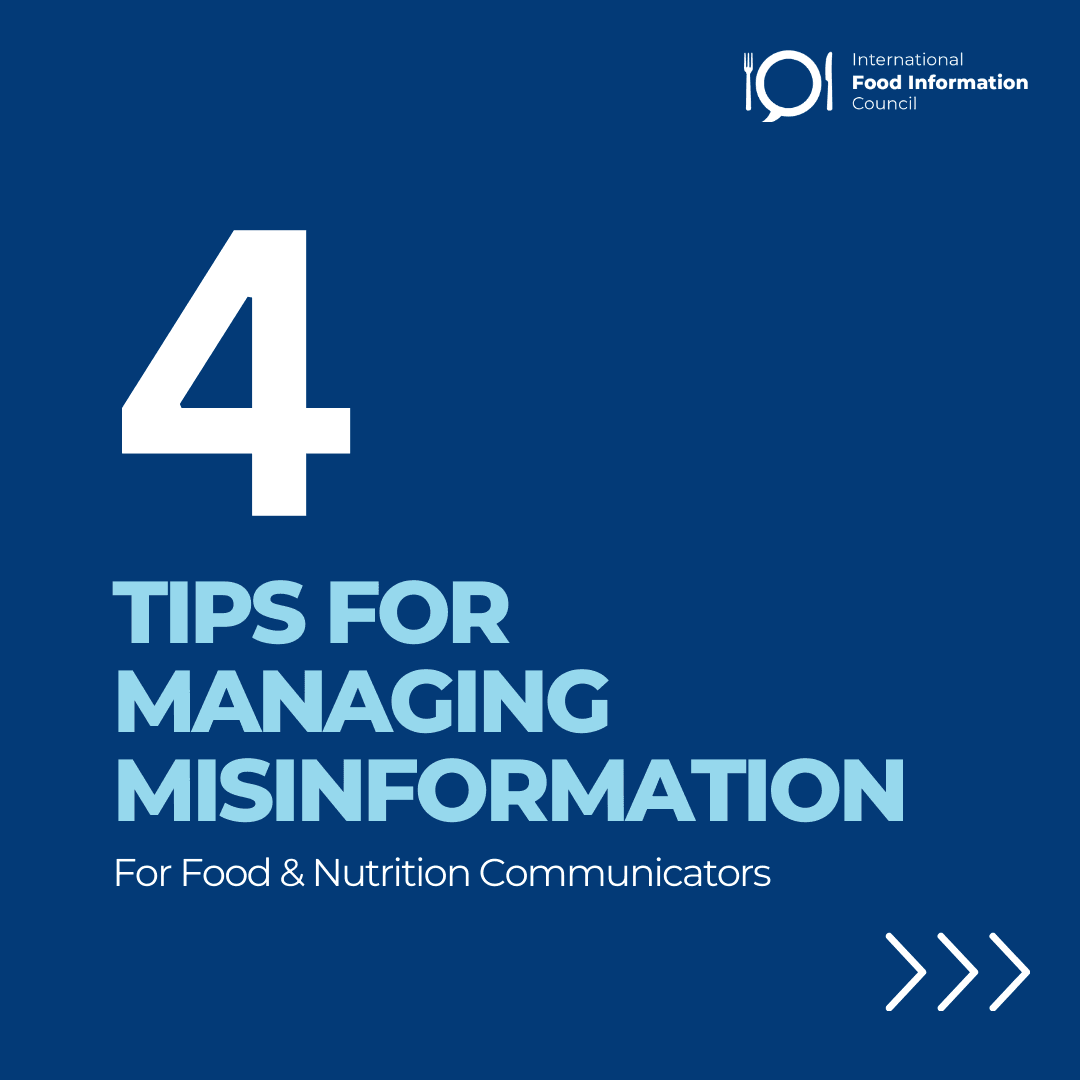
Science Communication


Key Messages
These key messages reflect core principles for communicating science clearly and responsibly. Use them to guide your approach to establishing trust, building comprehension and helping audiences make informed decisions about food and health.
- Science is a process of ongoing discovery. Scientific research builds over time. A single study is rarely conclusive on its own. Helping audiences understand that science evolves can reduce confusion and foster greater confidence in new information.
- Trust and context are essential to effective science communication. Communicating science clearly means more than just sharing facts. It involves putting findings into context, addressing uncertainty when it exists and using language that aligns with what people care about and need to know.
- Understanding how to interpret scientific evidence is critical. Not all research carries the same weight. Communicators should understand study design, methodology and limitations to accurately share what research findings do – and do not – tell us.
Research
Consumer trust plays a key role in how people respond to science-based information. Explore IFIC consumer research to better understand public attitudes and strengthen your science communication.
2025 IFIC Food & Health Survey: A Focus On Food & Nutrition
Learn MoreIFIC Spotlight Survey: Americans’ Trust In Food & Nutrition Science
Learn MoreResources
Dive deeper into key science communication topics with expert perspectives that support stronger, evidence-based messaging.
Webinars
Sharpen your science communication skills with our free IFIC Expert Webinars. All feature expert-backed strategies for translating nutrition and health science clearly and confidently.

Savvy Science Communication: Delivering Impact & Credibility
October 17, 2024

Downloads to Share
Find ready-to-use resources to help support your science communication. These fact sheets and one-pagers make it easier to share credible, science-based information on food and health.
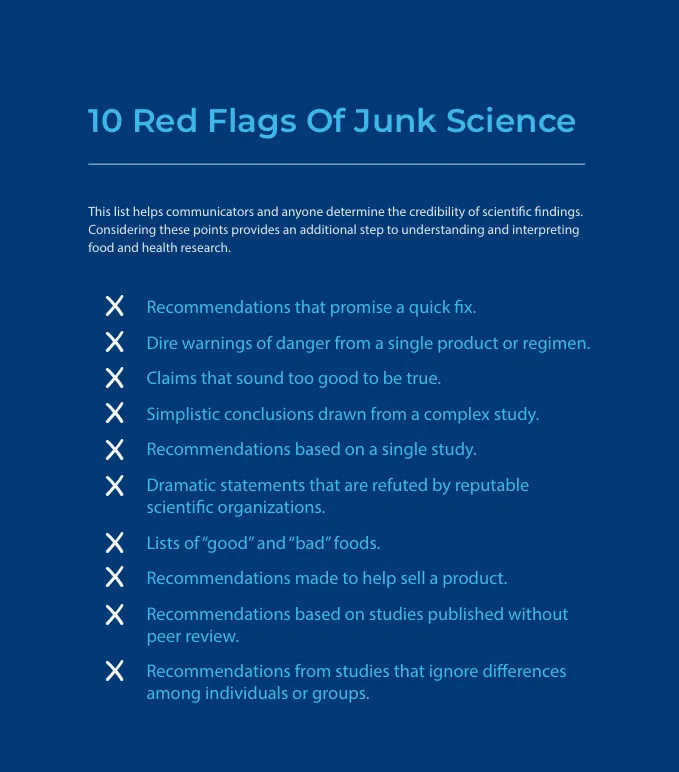
10 Red Flags of Junk Science
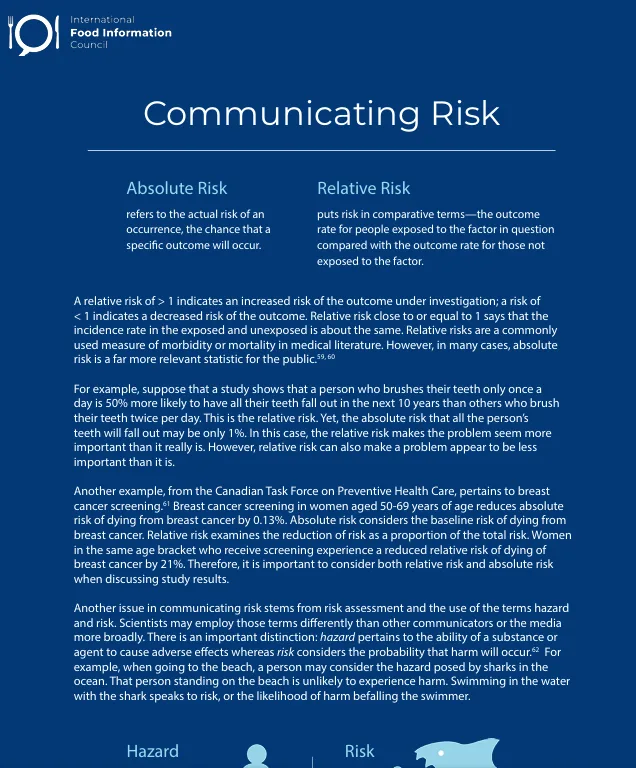
Communicating Risk
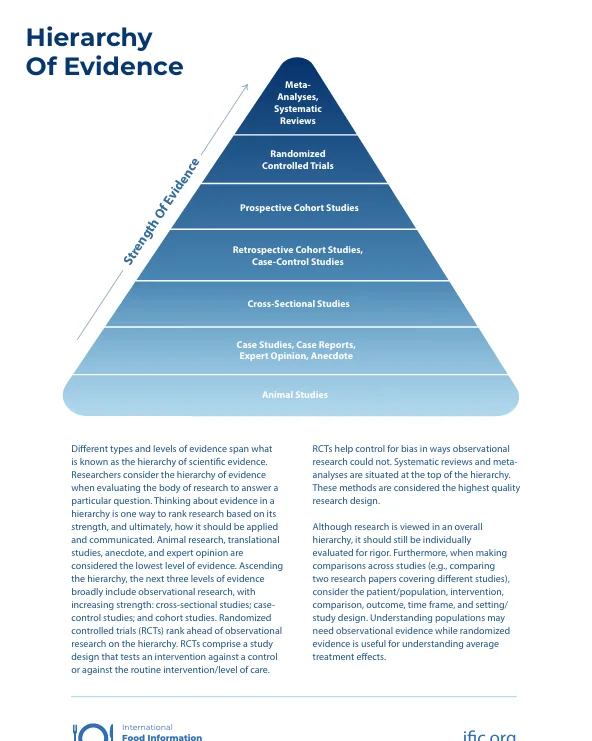
Hierarchy of Evidence
In the News
Catch up on the latest headlines for real-world science communications examples featuring IFIC experts.


